As a BetterHelp affiliate, we receive compensation from BetterHelp if you purchase products or services through the links provided
Living with a narcissist can be an emotionally and mentally exhausting experience, especially when leaving is not an option. Perhaps you’re in a situation with shared responsibilities or trying to protect your children from the negativity of a broken home. Whatever the reason, it’s crucial to find coping mechanisms and strategies that help you maintain your sanity and well-being.
Narcissistic individuals tend to exhibit self-absorption, a constant need for admiration, and a lack of empathy. This behavior can lead to a toxic and emotionally draining environment for those who live under the same roof. In such situations, understanding the traits and tactics of a narcissist becomes imperative to navigate the complex and challenging dynamics.
Educating yourself about narcissism, setting boundaries, and developing techniques for dealing with the emotional turmoil often associated with having a narcissistic partner or family member is essential. Investing in self-care, maintaining a support network, and seeking therapy can help ensure that your mental health remains a priority.
Key Takeaways
- Recognizing narcissistic behavior is the first step in learning how to manage living with a narcissist.
- Maintaining boundaries and practicing self-care can help protect your emotional well-being.
- Seeking therapy and support from others can provide valuable insight and guidance on handling the challenges of living with a narcissist.
 Understanding Narcissism
Understanding Narcissism
At its core, narcissism is a personality disorder characterized by an inflated sense of self-importance, a need for constant admiration, and a lack of empathy toward others. If you are living with someone displaying these traits, educating yourself about narcissistic personality disorder (NPD) is crucial to understanding their behavior.
When dealing with a narcissist, you might notice their grandiose self-esteem, often believing they are superior to others. They may also have a strong sense of entitlement or frequently seek validation and praise. Narcissists tend to be emotionally manipulative, which can result in relationships that revolve around their needs and desires.
It’s important to remember that NPD is a disorder, and those who suffer from it often don’t recognize their behavior as problematic. Therefore, it’s not usually a matter of being stubborn or intentionally hurtful. The narcissist’s world revolves around themselves, and they genuinely struggle with empathy and understanding the needs, feelings, and perspectives of others.
Here are some useful strategies for living with a narcissist when leaving is not an option:
- Set boundaries: Establish and enforce limits on what you are willing to tolerate in terms of their behavior.
- Protect your self-esteem: Maintain a strong sense of self-worth and avoid internalizing negative comments or criticism from the narcissist.
- Disengage: Choose your battles wisely—sometimes, it’s more productive to disengage from a heated argument instead of engaging with the narcissist.
- Practice self-care: Living with a narcissist can be emotionally exhausting. Make time for yourself and maintain a support network of friends and family.
Gaining insights into narcissism’s intricacies can equip you with valuable tools and coping mechanisms to navigate life with a narcissist in your household. Understanding their disorder can help you better manage your reactions and emotions, creating a sense of balance and stability in challenging circumstances.
 Living with a Narcissist
Living with a Narcissist
In a Relationship
Living with a narcissist in a romantic relationship can be emotionally draining and pose numerous challenges. Establishing and maintaining healthy boundaries is crucial to your well-being. Ensure you:
- Communicate your needs and feelings clearly
- Don’t take their behavior personally
- Develop a strong support network outside the relationship
- Keep a realistic view of the relationship’s future
- Consider seeking therapy for yourself
With a Family Member
When a family member is a narcissist, you may feel pressured to conform to unrealistic expectations. Here are some tips to help you cope:
- Set boundaries and be assertive
- Understand it’s not your responsibility to change them
- Create emotional distance, if possible
- Limit the time spent around them
- Focus on your mental health and self-care
With a Friend
Having a narcissistic friend can be challenging. To navigate this friendship, try the following:
- Be aware of your friend’s manipulative tendencies
- Set firm boundaries on your time and emotional energy
- Cultivate other friendships to maintain balance
- Identify and maintain your principles and values
With a Parent
Growing up with a narcissistic parent can have a lasting impact on your emotional health. As an adult, you may still be living with them. Consider these strategies to better your situation:
- Establish boundaries to protect yourself
- Educate yourself about narcissistic personality disorder
- Seek professional counseling or support groups
- Practice self-care and self-compassion regularly
With a Spouse
Marital relationships with a narcissistic spouse can test your patience. To survive such a partnership, consider the following tips:
- Strengthen your support system outside of the marriage
- Set clear boundaries and learn to enforce them
- Foster your interests and hobbies
- Vent your frustrations to trusted friends or a therapist
- Remember, you deserve respect and consideration, too
Handling narcissistic relationships can be challenging, but prioritizing your well-being and setting healthy boundaries, you can maintain your emotional health and make the most of these connections.
Recognizing Narcissistic Behavior
Living with a narcissist can be challenging, especially when leaving is not an option. Recognizing their behavior is crucial for maintaining your mental health and setting boundaries. In this section, we’ll explore some key aspects of narcissistic behavior to help you identify and cope.
Narcissists display a pattern of manipulation and charm to get what they want. They might flatter you or pretend to care about your feelings to gain control. Pay close attention to how they react when something doesn’t go their way or when they’re not the center of attention – their charm could disappear quickly, revealing their true colors.
Some common narcissistic behaviors may include:
- Constantly seeking admiration and praise
- Belittling or criticizing others to boost their self-esteem
- Showing an excessive sense of entitlement and self-importance
- Exploiting others without guilt or remorse
- Lacking empathy and being emotionally unresponsive
Triggers are specific situations or events that might unleash the narcissist’s abusive behavior. It’s helpful to be aware of these triggers to avoid situations that might escalate into uncomfortable and potentially harmful encounters. Common triggers might include:
- Feeling criticized or challenged
- Experiencing a setback or disappointment
- Perceiving betrayal or disloyalty
- Being confronted about their behavior
Narcissistic abuse often follows an episodic pattern, where periods of charm and kindness are interrupted by abusive behavior. These episodes can be emotionally exhausting, making it difficult to trust the narcissist and leaving you walking on eggshells.
While living with a narcissist, it’s essential to recognize and protect yourself from their abusive and manipulative behaviors. Setting boundaries, seeking support from loved ones, and practicing self-care are all vital strategies for coping in this challenging situation. Stay vigilant in recognizing the signs of narcissistic behavior, and remember, you deserve to be treated with respect and kindness.
 Building Boundaries
Building Boundaries
Living with a narcissist can be challenging, especially when leaving isn’t an option. One way to make the situation more bearable is by building strong boundaries. When you enforce these boundaries, it can create a healthier environment for both you and the narcissist. Here’s how you can successfully set and maintain boundaries in your relationship.
First, you should determine what your limits are. Establish what behaviors you’re unwilling to tolerate and be clear about your expectations. This can include things like not allowing the narcissist to belittle or criticize you or not engaging in emotional manipulation. Being firm and consistent with these limits is essential to clarify that you will not tolerate certain behaviors.
Secondly, practice assertive communication. When communicating with a narcissist, expressing your feelings and opinions calmly, clearly, and respectfully is important. Being assertive means standing up for yourself without being aggressive or confrontational. Practice sentences that start with “I feel” or “I think” to express your point of view and keep the focus on your emotions rather than being accusatory.
In your interactions with a narcissist, try to find win-win solutions for conflicts. Narcissists often have difficulty compromising, so finding a solution that benefits both parties can make it easier for them to accept. For example, suggest an activity you can enjoy and meet your needs instead of arguing about how much time you spend together.
Establishing boundaries may also involve distancing yourself physically or emotionally when necessary. Sometimes, taking a step back is crucial to protect your mental and emotional well-being. If the narcissist constantly demands your attention or invades your personal space, asserting your need for alone time or space to decompress is okay.
Remember, it’s essential to prioritize your self-care when living with a narcissist. Taking care of yourself physically, emotionally, and mentally will help you enforce your boundaries and better manage the relationship. Top self-care activities may include regular exercise, hobbies, forming support networks, and seeking professional help.
By building and maintaining healthy boundaries, you can create a more manageable living situation with a narcissist. Stay committed to these practices, and remember that your well-being should always come first.
 The Essence of Compassion
The Essence of Compassion
Cultivating compassion when living with a narcissist may seem daunting, but protecting your well-being is essential. Here are some key points to help you embrace compassion towards yourself and the narcissist.
Firstly, recognize your emotions and needs. Acknowledging your feelings and giving yourself the care you deserve are crucial steps. Remember, feeling hurt or frustrated is okay; accepting your emotions allows you to move forward.
- Practice self-care by finding activities that nourish your soul, such as spending time with friends or engaging in a favorite hobby.
- Consider seeking professional help to work through the emotional turbulence of living with a narcissist.
Next, concentrate on developing empathy for the narcissist, understanding that deep-seated insecurity and fear of abandonment lie beneath their behavior. Remember that their actions reflect these internal struggles rather than being entirely about you.
- Remind yourself of the potential causes of narcissism, such as a history of childhood trauma or neglect. This can help to create an understanding of the person’s behavior.
- Practice active listening when the narcissist talks, showing them their feelings are heard and validated, even if you disagree with their actions.
Set boundaries to maintain a compassionate balance in the relationship. Establishing clear limits can help nurture kindness towards the narcissist while safeguarding your emotional well-being.
- Be assertive when expressing your needs, and be prepared to reinforce them when the narcissist tries to push your boundaries.
- Try to remain calm and use “I” statements to communicate your feelings, avoiding accusatory language.
Finally, approach the relationship with acceptance and realistic expectations. It’s essential to accept the narcissist for who they are and not expect them to change overnight, or perhaps ever. By letting go of control, you can explore alternative ways to find emotional fulfillment within yourself and other relationships.
- Focus on what you can influence in the relationship rather than trying to change the narcissist’s behavior.
- Surround yourself with a support network of friends and loved ones who can provide encouragement and understanding during challenging times.
Embracing compassion when living with a narcissist may be difficult, but it’s an invaluable tool for mental health and a pathway to a more balanced relationship. Remember to be patient with yourself and seek help if needed as you navigate this complicated journey.
 Understanding the Cycle
Understanding the Cycle
Living with a narcissist can be challenging, especially when leaving isn’t an option. To make the situation more manageable, it’s crucial to understand the cycle that often characterizes narcissistic relationships.
The cycle usually involves three stages: idealization, devaluation, and discard. In the idealization stage, the narcissist showers you with love, praise, and attention. They may seem like the perfect partner and their charm makes it easy to get swept away. However, don’t let yourself be fooled by this façade, as it’s just a manipulation tactic.
As you grow more attached, the narcissist moves on to the devaluation stage. They may start criticizing, humiliating, or belittling you during this phase. They might even begin gaslighting you, making you doubt your memories and perceptions. Be aware of these tactics and remind yourself that you deserve respect and kindness.
Finally, the discard phase arrives, leaving you feeling rejected and worthless. The narcissist might abruptly cut you off or become distant, only to return when they need your attention or support again. It’s important to recognize that their behavior reflects their insecurities, not a testament to their worth.
To cope with this cycle, consider implementing the following strategies:
- Set and maintain healthy boundaries with the narcissist.
- Develop a strong support system outside of the relationship.
- Practice self-care to maintain your emotional well-being.
- Seek professional help if necessary.
By understanding the cycle and employing these strategies, you’re taking the first steps toward regaining control and fostering a healthier living.
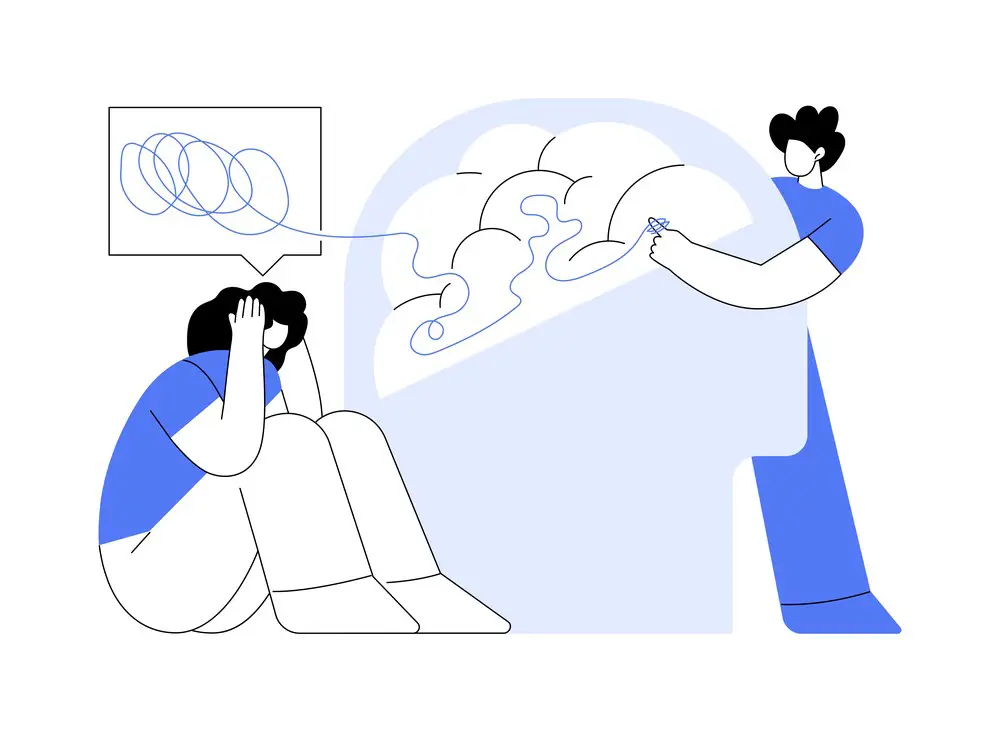
Gaslighting and Its Impact
Living with a narcissist can be challenging, especially when you’re exposed to their manipulation tactics like gaslighting. Gaslighting is a form of psychological abuse where the abuser tries to distort your perception of reality, making you doubt your own experiences, feelings, and sometimes, even your sanity. It can damage your mental and emotional well-being, but understanding its impact can help you navigate it.
The first thing to know is that gaslighting can be subtle and gradual. It might start with the narcissist questioning your memory of an event or insisting that something happened differently than you recall. Over time, this can escalate to more intense forms of manipulation, like dismissing your emotions or even accusing you of lying. It’s important to trust your instincts and recognize these behaviors for what they are: attempts to control and undermine you.
Gaslighting can also impact your self-esteem and confidence. When a narcissist constantly undermines your experiences and feelings, you might start believing that you cannot make sound judgments or decisions. You may even begin to doubt your worth and value as a person. To counter this, try to remind yourself of your strengths, accomplishments, and supportive relationships outside the situation with the narcissist.
Developing coping strategies to protect your mental health while dealing with gaslighting is crucial. Here are some tips:
- Seek support: Talk with friends, family, or a therapist who can validate your experiences and provide objective perspectives.
- Document incidents: Keep a journal or record instances where you feel gaslighted. This can help you gain clarity and might serve as evidence if needed.
- Set boundaries: Try to create emotional and mental boundaries and communicate them calmly with the narcissist. Be prepared that they might not respect them, but staying firm will help you regain some control.
- Practice self-care: Prioritize your well-being and engage in activities that make you happy, healthy, and centered. This can help mitigate the effects of gaslighting on your mental health.
By understanding gaslighting and its impact on your life, you can take steps to protect yourself and maintain your sense of reality, even when leaving is not an option. Remember, your feelings and experiences are valid, and you deserve to be treated with respect and kindness.
 Dealing with Emotional Outbursts
Dealing with Emotional Outbursts
Living with a narcissist can be challenging, especially when handling their emotional outbursts and anger. Don’t worry, though! Here are some friendly strategies you can use to cope with these situations and maintain a sense of control over your own emotions.
Stay Calm: During an emotional outburst, you must maintain your composure. Focus on your breathing and practice mindfulness techniques to help you remain calm. Avoid meeting their anger with your own, as it will only escalate the situation.
Set Boundaries: Establish clear, firm boundaries for acceptable behavior. Communicate your limits and ensure that you stick to them. Walk away from a confrontational situation if you feel your boundaries are being crossed, and remind the narcissist about the agreed-upon limits.
Validate Their Feelings – To an Extent: Validation can help defuse the intensity of the narcissist’s emotional outbursts, but be careful not to feed their ego. Acknowledge and validate their feelings without agreeing with or enabling their behavior.
- For example, you could say: “I understand you’re upset, but I don’t agree with how you express it.”
Choose Your Battles Wisely: It’s important to pick and choose which issues to address and which to let go. Addressing every outburst can be exhausting, so prioritize the issues needing resolution. Choosing your battles will save you energy and reduce the likelihood of further arguments.
Seek Support: Managing the emotional weight of living with a narcissist can be tough. Contact friends, family, or a professional counselor who can provide support, understanding, and advice during difficult moments. Building a support group will help you maintain your emotional well-being in the face of a narcissist’s unpredictable behavior.
Remember these strategies when dealing with emotional outbursts and anger from the narcissist in your life. While it’s not always easy, maintaining your well-being and proper communication will enable you to navigate these challenges more effectively.
 Move beyond pain and confusion together.
Move beyond pain and confusion together.
What Love Means to a Narcissist
To a narcissist, love can feel like a very different concept compared to the romantic, selfless notion most of us are accustomed to. Your understanding of love may not align with theirs, leading to confusion and frustration in your relationship.
Narcissists often see love as a means to an end. They crave the validation, admiration, and attention of being in a romantic relationship. Love, for them, is a vehicle to meet these needs rather than a genuine connection or bond with another person.
When expressing love, narcissists may use grand gestures or displays of affection that may seem exaggerated. Their goal is to have their partner’s adoration and admiration rather than express their emotions genuinely.
A key element of love, empathy, might be lacking in a narcissist’s understanding of the concept. Their failure to understand others’ feelings, desires, and needs can create a barrier to forming meaningful connections. This can lead to one-sided or selfish feelings and actions in the relationship.
You might find that a narcissist’s love comes with strings attached. They consider their needs and desires first, often disregarding their partner’s feelings. As a result, their love might feel conditional, with the expectation that they’ll be provided with a constant supply of praise and attention.
It’s important to recognize these dynamics when living with a narcissist and understand their perception of love fundamentally differs from yours. By recognizing this, you can better navigate the challenges in your relationship and set healthier boundaries for your emotional well-being.
Remember that your well-being and happiness are essential, and it’s crucial to prioritize your needs even when living with a narcissist who has a different understanding of love.
 The Role of the Support System
The Role of the Support System
Living with a narcissist can be challenging and overwhelming, especially when leaving is not an option. It’s essential to have a strong support system to help you navigate through these challenges. Your support system will be a significant source of strength, understanding, and practical advice.
A solid support system will include people who can provide emotional support, such as friends, family, or colleagues who understand your situation. These individuals can help you maintain your emotional well-being and self-esteem by offering encouragement, validation, and empathy.
You can also turn to experts or professionals in mental health or relationships. A therapist or support group is an excellent way to gain insights and fresh perspectives to better cope with your difficulties. Mental health professionals can provide valuable tools and resources to help address the often complex issues of living with a narcissist.
In addition, it’s crucial to establish boundaries with the narcissist to protect your emotional health. A support system can help you practice setting limits and staying firm in your decisions. Remember that your loved ones and professionals are there to support you, not only in coping but also in developing healthy boundaries.
A strong support system is vital when living with a narcissist. Ensure you have people who can provide emotional support, guidance, and understanding during this challenging time. Building a support system will empower you and give you the strength to navigate living with a narcissist when leaving is not an option. So, reach out to your loved ones and professionals and allow them to help you grow through this experience.
 Self-Care Strategies
Self-Care Strategies
When living with a narcissist and leaving is not an option, focusing on your well-being is essential. Practicing self-care, you can maintain a healthy mindset, boost your self-esteem, and nurture self-confidence. Here are a few strategies to help you prioritize yourself.
1. Establish boundaries: Clear boundaries are key to preserving mental health. Politely express your limits and enforce them consistently. Communicate your needs effectively, and don’t hesitate to say “no” when necessary.
2. Focus on your strengths: Recognize your achievements and talents. Make a list of your positive qualities and accomplishments, and remind yourself of them regularly. This will help combat any negative feelings the narcissist may provoke in you.
3. Prioritize your hobbies and interests: Engage in activities you enjoy and are passionate about. Doing so will help you maintain a sense of self and provide a constructive outlet for your emotions.
4. Practice self-compassion: Treat yourself with kindness, understanding, and forgiveness. Acknowledge any struggles you may face and credit yourself for your effort in difficult situations.
5. Seek support from others: Reach out to friends and family members or consider joining a support group. Connecting with others who understand your situation can provide invaluable comfort and camaraderie.
6. Maintain a healthy lifestyle: Eat well, exercise regularly, and prioritize sleep. A balanced lifestyle will help you manage stress when coping with a narcissist.
7. Practice mindfulness and relaxation techniques: Deep breathing, meditation, or yoga can improve your mental resilience and provide relief during challenging times.
Remember, focusing on your well-being is not selfish. Self-care will enable you to remain grounded and assertive when dealing with a narcissist. By nurturing your self-esteem and self-confidence, you’ll be better equipped to handle the challenges of living with a narcissist.
Ways to Navigate Arguments
When living with a narcissist and leaving isn’t an option, it’s important to learn how to navigate arguments effectively. Here are some friendly suggestions on how to handle conflicts with a narcissist.
Choose your battles wisely: Not every disagreement is worth the energy and effort. Sometimes, letting minor issues slide is better to maintain a peaceful environment. Save your energy for more important discussions.
Stay calm and composed: It’s natural for emotions to run high during arguments. However, try your best to remain level-headed. Take deep breaths and maintain a calm tone. This will show the narcissist that you control your emotions and won’t be easily provoked.
Use “I” statements: Instead of using accusatory language like “you always” or “you never,” use “I” statements to express your feelings and needs. This can help prevent the narcissist from becoming defensive or shifting blame. For example, say, “I feel hurt when you dismiss my opinions” rather than “You always dismiss my opinions.”
Employ negotiating skills: A crucial aspect of navigating arguments with a narcissist is being able to negotiate effectively. Find common ground and express your willingness to compromise. This demonstrates your maturity and flexibility while addressing your needs and concerns.
Set boundaries: Make it clear which behaviors you find unacceptable and stick to your boundaries. It’s important not to give in to manipulation tactics, such as guilt-tripping or gaslighting.
Know when to walk away: Arguments with a narcissist may become unproductive or overly hostile. Recognize when it’s time to disengage and give yourself the space to cool down and regroup.
Living with a narcissist is challenging, but by following these strategies, you can navigate arguments and maintain a sense of balance in your life.
 The Necessity of Therapy
The Necessity of Therapy
Living with a narcissist can be challenging, especially when leaving isn’t an option. For this reason, seeking therapy for yourself is crucial. Working with a skilled counselor can help you navigate the complexities of living with a narcissist and improve your emotional well-being.
Setting Boundaries: One important aspect of therapy is learning to set firm boundaries with the narcissist in your life. A counselor can help you identify and communicate your limits effectively to the narcissist. Establishing these boundaries is essential in taking care of your emotional needs.
Recognizing Manipulation: Narcissists are known for their manipulation tactics. Therapy can provide you with the tools to identify these tactics and avoid falling into their traps. Understanding their patterns, you can better protect yourself from being emotionally drained.
Building Self-Esteem: Living with a narcissist can take a toll on your self-esteem. In therapy, you’ll work on boosting your self-confidence and cultivating a healthy sense of self-worth. This is an essential part of healing and growth.
Developing Coping Strategies: A counselor can help you develop effective coping mechanisms to manage the stress living with a narcissist can cause. These strategies can include grounding techniques, self-care practices, and seeking support from friends and family. A healthy coping plan is vital in maintaining your emotional resilience.
In summary, therapy is valuable when leaving the narcissist isn’t an option. By working with a counselor and focusing on your emotional well-being, you can better navigate the challenges of living with a narcissist and ultimately improve your quality of life.
The Effect on the Victim
Living with a narcissist when leaving is not an option can be challenging and draining for the victim. In this situation, you may struggle with your emotions and mental well-being. It is essential to understand the effects it may have on you to preserve your sanity and strength consciously.
Feeling constantly belittled or criticized is one of the most common experiences when living with a narcissist. They have a knack for undermining your confidence, making you feel inadequate and insecure. As a result, you may begin to doubt your abilities and question your self-worth, leading to a vicious cycle that erodes your self-esteem.
Having your needs neglected is another repercussion of living with a narcissist. They tend to prioritize their desires and feelings over everyone else’s, leaving you feeling unseen and undervalued. This disregard for your needs can lead to deep isolation and loneliness, even when sharing a home with the narcissist.
A narcissist thrives on manipulation, which often involves playing mind games. They may use gaslighting tactics to make you question your sanity and memory or employ passive-aggressive behaviors to provoke guilt or emotional reactions, keeping you on edge and emotionally confused.
Living with a narcissist may also result in feelings of hopelessness and dissatisfaction in your relationship. Building a deep, meaningful connection with a narcissist is challenging since they often lack empathy and genuine commitment to the relationship. As a result, you might feel disconnected and unable to achieve genuine emotional intimacy.
To cope with these effects and mitigate their impact on your well-being, consider the following strategies:
- Establish and maintain strong personal boundaries
- Seek support from trusted friends or professionals
- Find healthy outlets for stress, such as exercise or hobbies
- Practice self-care by prioritizing your physical, emotional, and mental health
- Maintain a realistic perspective by reminding yourself that their behavior reflects their issues, not your worthiness.
Remember, acknowledging the challenges and taking care of your well-being is crucial when living with a narcissist, especially when leaving is not an option.
 How to Heal
How to Heal
Healing while living with a narcissist can be challenging, but it is not impossible. You can navigate this difficult situation by adopting a few strategies and maintaining a few perspective shifts. Here is a helpful guide on healing when leaving isn’t an option.
Maintain perspective: Understanding that the narcissist’s behavior is not a reflection of you is crucial. Remind yourself that their actions stem from deep-seated insecurities and do not indicate your worth. Doing so will help you detach emotionally from their harmful behavior.
Practice visualization: One useful technique to cope with the stress of living with a narcissist is through visualization. Imagine a protective bubble of positive energy surrounding you, shielding you from their negativity. This method can help you maintain your sense of self and reduce emotional exhaustion.
Incorporate mindfulness: Mindfulness can be a powerful tool for emotional healing. Regularly practicing mindfulness techniques such as meditation, journaling, or deep breathing can help you stay grounded in the present and cultivate self-awareness and compassion.
To establish a mindfulness routine, consider the following:
- Set aside specific times each day for mindfulness activities, such as in the morning or before bed.
- Begin with just a few minutes of meditation, gradually increasing the duration as you become more comfortable.
- Find a peaceful, quiet space where you can practice without distractions.
- Experiment with different mindfulness activities to discover what resonates with you the most.
Remember, healing is a process, and it takes time and patience. By cultivating a strong sense of self, practicing visualization, and incorporating mindfulness into your daily life, you can begin to heal while living with a narcissist. Be gentle with yourself, and know you deserve love, respect, and happiness.
 The Notion of Control
The Notion of Control
When living with a narcissist, it’s no surprise that control plays a significant role in your interactions and relationships. Chances are, you’ve experienced firsthand a narcissist’s desire to wield power and take charge. Navigating this challenging situation can feel overwhelming, but never fear — there are effective ways to cope.
Narcissists have a pattern of using control tactics to assert their influence over others. These tactics may include manipulation, coercion, and even intimidation. Recognizing these behaviors is the first step towards reclaiming your autonomy. Some common control tactics include:
- Gaslighting: Making you question your perceptions and memories
- Triangulation: Pitting others against you to create division
- Isolation: Limiting your connections to other people
The key to dealing with a narcissist’s penchant for control starts by focusing on your well-being. Here are some helpful tips for coping with the situation:
- Establish boundaries: Determine what you’re willing to tolerate and enforce these boundaries consistently.
- Practice self-care: Prioritize taking care of your own emotional and physical needs.
- Find a support system: Connect with others who understand the challenges of living with a narcissist and can offer guidance.
- Develop an exit plan: While leaving may not be an option right now, it’s essential to be prepared for the possibility of the future.
Remember, no one should have complete control over your life. By acknowledging the dynamics between you and a narcissist and developing effective coping strategies, you can empower yourself and regain control.
Possible Safety Measures
Living with a narcissist can be challenging, especially if leaving is not an option. But you can still take measures to ensure your safety and well-being. Below are some helpful steps you can take.
Set boundaries: You must establish and maintain clear boundaries. Be firm in asserting your needs and expectations. However, be prepared for resistance and remain consistent in asserting your limits.
Create an emotional support system: Seek help from friends, family, therapists, or support groups. Having people who understand what you’re going through can be invaluable.
Maintain your independence: Cultivate interests and friendships separate from the narcissist. Keeping a sense of autonomy is essential for your mental health and well-being.
Develop an exit plan: Even if leaving the relationship is not an option, have a plan for when that changes. Save money, gather important documents, and research possible accommodations.
- Educate yourself about narcissism: Understand the characteristics and patterns of narcissistic individuals. This knowledge will help you cope with their behavior and make informed decisions.
- Practice self-care: Prioritize your physical, mental, and emotional well-being. Exercise, maintain a healthy diet, and take time for relaxation and leisure.
Remember, it is essential to prioritize your safety when living with a narcissist. By taking these steps, you can better navigate this challenging situation and protect your well-being.
The Role of Insecurities
Living with a narcissist can be challenging, especially when leaving is not an option. One of the key aspects to understand while navigating your relationship is the role of insecurities. Narcissists often project an overly confident persona, but a fragile sense of self is underneath that facade. Recognizing and understanding this dynamic can provide valuable insights into their behavior and help you adapt accordingly.
Though it may seem counterintuitive, narcissists deal with insecurities like anyone else. However, they often employ tactics to mask or compensate for these feelings of inadequacy. For example, they may boast about their accomplishments or put others down to elevate themselves. Recognizing these patterns can help you respond effectively when interacting with them.
Setting boundaries is crucial when living with a narcissist. Make it clear that you will not tolerate any form of manipulation or demeaning behavior. By standing your ground, you show them that their tactics will not work on you. Maintain a sense of your self-worth by reminding yourself of your strengths and accomplishments. This can act as a protective armor against the narcissist’s attempts to undermine your confidence.
It’s also important to understand that living with a narcissist is not about fixing or changing their behavior. Rather, it’s about adjusting your reactions and expectations. Remember that you cannot control their actions, but you can control your own. By understanding the role of insecurities, you can learn to respond effectively and maintain your emotional well-being.
Learning to Internalize
Living with a narcissist can be challenging, especially when leaving is not an option. One way to cope with this situation is by learning to internalize. Internalizing filters the narcissist’s words and actions through your perspective, allowing you to maintain your sense of self and emotional well-being.
First, it’s important to recognize the narcissist’s behavior for what it is: an attempt to fulfill their own needs with little regard for yours. When a narcissist does something hurtful or manipulative, remind yourself that it’s not about you. Try using phrases like “This is their issue, not mine.” Doing this can shift your focus away from their behavior and your emotional health.
Next, establish healthy boundaries with the narcissist. While it’s not always possible to make physical space, you can create emotional distance. Start by limiting what topics you’re willing to discuss or how much time you spend together. For example, you might avoid discussing your personal life or limit your time with them daily to a specific amount. This can help minimize the opportunities for the narcissist to manipulate and control you.
When faced with the narcissist’s constant need for validation and attention, it’s crucial to separate their desires from their own needs. Develop a strong sense of self by engaging in activities and hobbies that bring you joy and fulfillment. Surround yourself with supportive friends and loved ones who can offer a more balanced perspective.
Finally, remember that you are worthy of respect and empathy. Never let the narcissist’s behavior dictate how you feel about yourself is essential. Treat yourself with kindness and acknowledge your accomplishments and strengths, no matter how big or small they may seem.
Learning to internalize and regain control of your emotional well-being is crucial when living with a narcissist. By recognizing their behavior for what it is and establishing healthy boundaries, you can maintain your sense of self and better manage your relationship with the narcissist.
The Importance of Studying Narcissism
Living with a narcissist can be challenging, especially when leaving isn’t an option. By understanding narcissism better, you can develop strategies to cope and maintain a healthy relationship with the narcissistic individual. Studying narcissism is crucial for several reasons:
- Identify patterns and behaviors: By learning about narcissistic personality traits, you’ll be better equipped to recognize them daily. This helps you anticipate reactions and navigate conflict more constructively.
- Develop coping strategies: Studying narcissism provides valuable insight into the strategies useful for managing narcissistic individuals. These could include establishing boundaries, practicing self-care, and seeking support from a professional or a support group.
- Improve communication: Narcissists often struggle with empathy and can be highly sensitive to criticism. By understanding the nuances of their communication style, you can adapt your approach to convey your thoughts effectively without triggering defensive reactions.
- Maintain your mental well-being: Being aware of the potential impact of narcissistic behaviors on your emotional and mental health is essential. Studying narcissism helps you identify if you’re being affected by such behaviors, which allows you to seek help or make necessary changes in your life.
In summary, studying narcissism offers valuable insights to help you manage your relationship with the narcissistic person, develop effective coping strategies, maintain your mental well-being, and improve communication. So, explore the subject – it could make a significant difference in your life.
 Dealing with Verbal Abuse
Dealing with Verbal Abuse
Living with a narcissist can be challenging, especially when you’re confronted with verbal abuse regularly. When leaving isn’t an option, learning how to cope with such abuse without letting it damage your self-esteem and well-being is important. Here are a few strategies to help you navigate this difficult situation:
1. Establish Boundaries Setting boundaries is crucial to protect yourself from the constant barrage of hurtful words. Politely but firmly, let the narcissist know that certain topics or discussions are off-limits. Stick to your boundaries and avoid engaging in hostile conversations.
2. Disengage and Detach When a narcissist starts verbally attacking you, it’s best not to let their words affect you emotionally. Practice detaching yourself from the situation by recognizing that their behavior reflects their internal issues, not belittling your worth. Maintain your composure and don’t react to their comments.
3. Seek Support Having someone to confide in and validate your feelings is essential for coping with the onslaught of verbal abuse. Reach out to friends, family, or a mental health professional who understands what you’re going through and can provide the emotional support you need.
4. Create Positive Affirmations. Counteract the negative messages you’re receiving from the narcissist by reminding yourself of your positive traits and accomplishments. Write down a list of affirmations that emphasize your self-worth and keep it accessible so you can refer to it when you’re feeling low.
5. Practice Self-Care Prioritizing self-care helps you have the mental and emotional strength to deal with verbal abuse. Engage in activities that make you feel good about yourself, such as exercising, pursuing hobbies, or attending social events with supportive individuals.
Remember, dealing with the constant verbal abuse from a narcissist can be exhausting. Still, by employing these strategies, you can better protect your well-being and maintain your sense of self.
Understanding Codependency
Living with a narcissist can be extremely challenging, especially when leaving is not an option. One aspect you might encounter is codependency. In this situation, as the codependent person, you may be overly focused on the narcissist’s needs, often at the expense of your well-being. Understanding codependency can help you cope with these complex dynamics and enable you to maintain your emotional stability.
Codependency is characterized by an imbalanced relationship dynamic in which one person consistently prioritizes the needs and desires of another. This can lead to feelings of emotional exhaustion, resentment, and loss of self-worth. If you’re in a codependent relationship with a narcissist, it’s essential to recognize these patterns and develop strategies for self-care and boundary-setting.
Here are some signs of a codependent relationship with a narcissist:
- You feel responsible for the narcissist’s happiness and well-being.
- Your self-worth is heavily dependent on the narcissist’s approval.
- You find it difficult to assert your needs and desires in the relationship.
- You experience guilt or anxiety when setting boundaries with the narcissist.
To maintain a healthy sense of self while living with a narcissist, it’s crucial to take steps toward breaking the cycle of codependency:
- Acknowledge the issue. Accepting that you’re in a codependent relationship is a vital first step toward regaining your personal power. It’s important to understand that codependency is a learned behavior that can be changed with time and effort.
- Prioritize your needs. In a codependent relationship, it’s common to feel selfish or guilty for focusing on your own needs. However, caring for your emotional, physical, and mental well-being is crucial. Make a point of setting aside time for hobbies, exercise, or self-care activities that you enjoy.
- Establish healthy boundaries. Learning to set boundaries with a narcissist can be challenging, but reclaiming your sense of self is essential. Communicate your limits and expectations clearly, and practice saying “no” when necessary.
- Seek support. Building a strong support network outside of the narcissistic relationship can help give you perspective and emotional reinforcement. Connect with friends, family, or a therapist to discuss your experiences and gain insight into your codependent patterns.
Remember, recognizing and working to break free from codependency is an ongoing process. Be patient with yourself as you navigate the complexities of living with a narcissist when leaving is not an option. Adapt and evolve as you learn more about your emotional needs and develop healthier relationship dynamics.
The Role of Physical Abuse
Living with a narcissist can be challenging, especially when leaving isn’t an option. One aspect that requires attention is physical abuse, often exerted as a means of control and manipulation by narcissists.
You might find it difficult to recognize the signs of abuse at first, as they can be subtle or hidden. Be vigilant about the occasional bruises, unexplained injuries, or broken items around your home that could signal a deeper problem. Monitoring the frequency and severity of these occurrences is crucial to ensure your safety and well-being.
Remembering that narcissists may justify their abusive behavior or even blame you for provoking them is important. Remember that you’re not responsible for their actions, and their attempts to manipulate you can’t change the fact that abuse is never acceptable.
Develop a support network of friends, family, and professionals to turn to for help. They could provide valuable advice, encouragement, or even assistance in creating a safety plan if necessary. Don’t let the narcissist alienate you from your loved ones – maintaining strong connections will make a significant difference.
In an emergency where physical abuse escalates, don’t hesitate to contact law enforcement or seek immediate assistance from a shelter or a crisis hotline. Taking precautionary steps such as memorizing phone numbers or keeping important documents accessible can be crucial.
Coping with physical abuse while living with a narcissist isn’t easy. Still, by staying aware and taking action to protect yourself, you can navigate this challenge with more control and confidence.
 The Need for Attention
The Need for Attention
Living with a narcissist can be challenging, especially when leaving is not an option. One of the most significant characteristics of a narcissist is their need for attention. In this situation, understanding this need can help you cope with the challenging aspects of living with a narcissist.
Narcissists crave attention, whether praise, admiration or even negative attention. Their self-esteem depends on others recognizing their value and importance. Recognizing their need for attention can be crucial when living with a narcissist. Here’s some insight into this issue:
- Shift in priorities: A narcissist’s priorities often revolve around themselves. Sometimes, they might ignore or dismiss your needs to draw attention to themselves. You may have to prioritize your mental and emotional well-being to navigate these situations effectively.
- Balancing attention: You’ll have to strike a careful balance when giving a narcissist attention. Feed their ego too much, and they may become more demanding. However, withholding attention could lead to negative or destructive behavior. Listen to your instincts and adjust your responses to fit your situation.
- Positive reinforcement: Praising a narcissist for good deeds or positive behavior can help encourage them to act accordingly. Be genuine in your compliments, as insincere flattery could backfire.
Remember that your emotional needs are essential as well. Finding support from friends, family, or a counselor can be beneficial in coping with the challenges of living with a narcissist. By understanding and addressing the narcissist’s need for attention, you can adapt your approach and maintain a healthier environment.
The Importance of Empathy
Living with a narcissist is no small feat, especially when leaving is not an option. In such situations, cultivating empathy can be your best ally and a crucial coping mechanism. Empathy allows you to understand the feelings and thoughts of others better, even when their behaviors seem unreasonable or hurtful.
Recognize Their Struggles
Remembering that narcissists often struggle with deep-rooted insecurities and fears behind their arrogant façade is essential. This doesn’t excuse their behavior, but understanding the reasons behind their actions can help you maintain your empathy. Put yourself in their shoes for a moment, and try to imagine what it must feel like to seek validation and approval from others constantly.
Set Boundaries and Keep Your Emotions in Check
Empathy doesn’t mean you must give in to every demand or let the narcissist walk all over you. It’s essential to set boundaries for your self-preservation. Communicating your needs clearly and respectfully while remaining open to their perspective can make a difference. Acknowledging their feelings doesn’t mean you agree with them, but it can help you maintain a sense of understanding and compassion.
Practice Self-Care and Self-Compassion
In addition to empathizing with the narcissist in your life, extending the same level of understanding and compassion towards yourself is crucial. Balancing self-care with empathy for the narcissist will benefit both of you in the long run. It prevents burnout and helps you maintain a healthy emotional connection, allowing you to continue offering support when needed.
By focusing on empathy, you can reduce the negative impact of living with a narcissist and maintain a better sense of well-being. Remember your feelings and needs, and remember that empathy is not a sign of weakness but a powerful tool to improve your relationships and emotional health.
Frequently Asked Questions
How can I cope with a narcissistic partner if leaving isn’t possible?
To cope with a narcissistic partner when leaving isn’t possible, it’s important to maintain your emotional and mental well-being. Start by setting boundaries that protect your energy and sense of self. Find hobbies or interests that fulfill you and focus on cultivating supportive relationships outside your home. Maintaining your emotional autonomy and avoiding being drawn into their narcissistic world is vital.
What strategies can I use to deal with a narcissist I live with?
Here are some strategies to deal with a narcissist you live with:
- Detach emotionally: Don’t take their actions or comments personally, as their insecurities often fuel them.
- Set limits: Establish boundaries to keep your emotions and energy protected.
- Keep calm: Don’t engage in heated arguments, as this can feed their need for attention.
- Focus on you: Spend time engaging in self-care and personal growth.
- Seek support: Connect with friends, family, or a therapist who can provide guidance and understanding.
How do I maintain my self-esteem while living with a narcissist?
To maintain your self-esteem while living with a narcissist, it’s crucial to prioritize self-care and surround yourself with people who uplift and empower you. Validate your feelings and achievements, and avoid seeking approval from the narcissist. Remind yourself of your worth daily, and engage in activities that promote self-love and confidence.
What are some boundaries I should set when coexisting with a narcissist?
Setting boundaries with a narcissist is essential to maintaining your well-being. Some boundaries to consider include:
- Emotional boundaries: Limit the personal information you share with them to prevent manipulation.
- Physical boundaries: Establish your own space and limit your access to it.
- Time boundaries: Schedule time for self-care and personal pursuits outside the relationship.
- Communication boundaries: Set guidelines for respectful communication and avoid engaging in hostile conversations.
How can I communicate effectively with a narcissistic spouse or partner?
Effective communication with a narcissist requires patience, assertiveness, and a focus on your needs. Use “I” statements to express your feelings and needs, and remain calm and composed during conversations. Avoid getting drawn into an argument and practice active listening. When necessary, enforce boundaries to maintain your well-being.
What self-care habits can help when living with a narcissist?
Self-care habits can help maintain your emotional and mental health while living with a narcissist. Prioritize activities that bring you joy, such as hobbies or exercise. Connect with supportive friends and family regularly, and seek professional help. Also, practice mindfulness and reflection, as these activities can foster self-awareness, inner peace, and resilience.
?️ “Resilience in the Face of Chaos: Jacob Maslow on Surviving 9/11, Battling Narcissism, and Healing through BetterHelp” ?️
Hey, I’m Jacob Maslow, and if you’re engrossed in articles about mental health or handling life with a narcissistic partner, chances are you’ve stumbled upon some of my work. I’ve been around the block a few times—starting with a past that involved surviving the 9/11 attacks while working on the 101st floor. I witnessed the loss of over a thousand co-workers and friends.
? Life Transition & Family Dynamics ?
Post-9/11, I shifted gears to work from home, becoming the primary caregiver to our kids while my then-spouse worked demanding hours, often during the night. Our co-parenting was so seamless our kids effortlessly adapted to living in two households post-separation. But things turned dark recently when my ex-partner severed all my ties with our children.
???? The Struggles of Reunification & Legal Battles ????
I’ve seen firsthand the depths of narcissistic manipulation—my ex chased affairs with community leaders and then defamed them publicly. This trait has only intensified as she ages, with it, her blatant disregard for court orders regarding our children’s custody. I find myself caught in an unyielding legal battle and emotionally detached from my kids, which has been devastating.
? BetterHelp & Mental Health Management ?
To navigate this labyrinth of emotion, I turned to BetterHelp—a platform I highly recommend and am also an affiliate of. Alongside Lexapro and long walks that serve as my mental oasis, BetterHelp has been instrumental in helping me maintain my sanity.
✒️ Why I Write ✒️
I write to help others battling narcissistic partners and mental health hurdles. I know I’ve done my job if my experiences serve as a guiding light. I also offer legal advice through a separate site, assisting those in custody or non-compliance quagmire.
? Pro Tips for Your Journey ?
- Don’t underestimate the value of professional mental health services.
- Long walks can work wonders for mental clarity.
- If you’re dealing with a narcissistic partner, document everything—it will help legally.
So, if you’re navigating life’s rocky terrain, know you’re not alone. We may not control the cards we’re dealt, but we control our play. Let’s play to win.

- 3 Ways Wearing a Hat Can Help Lower Your Stress Levels - April 19, 2025
- Breaking the Silence: Why Men’s Mental Health Matters More Than Ever - April 15, 2025
- How to Transform a Home’s Patio Space into a Relaxing Space - March 23, 2025
This site contains affiliate links to products. We will receive a commission for purchases made through these links.


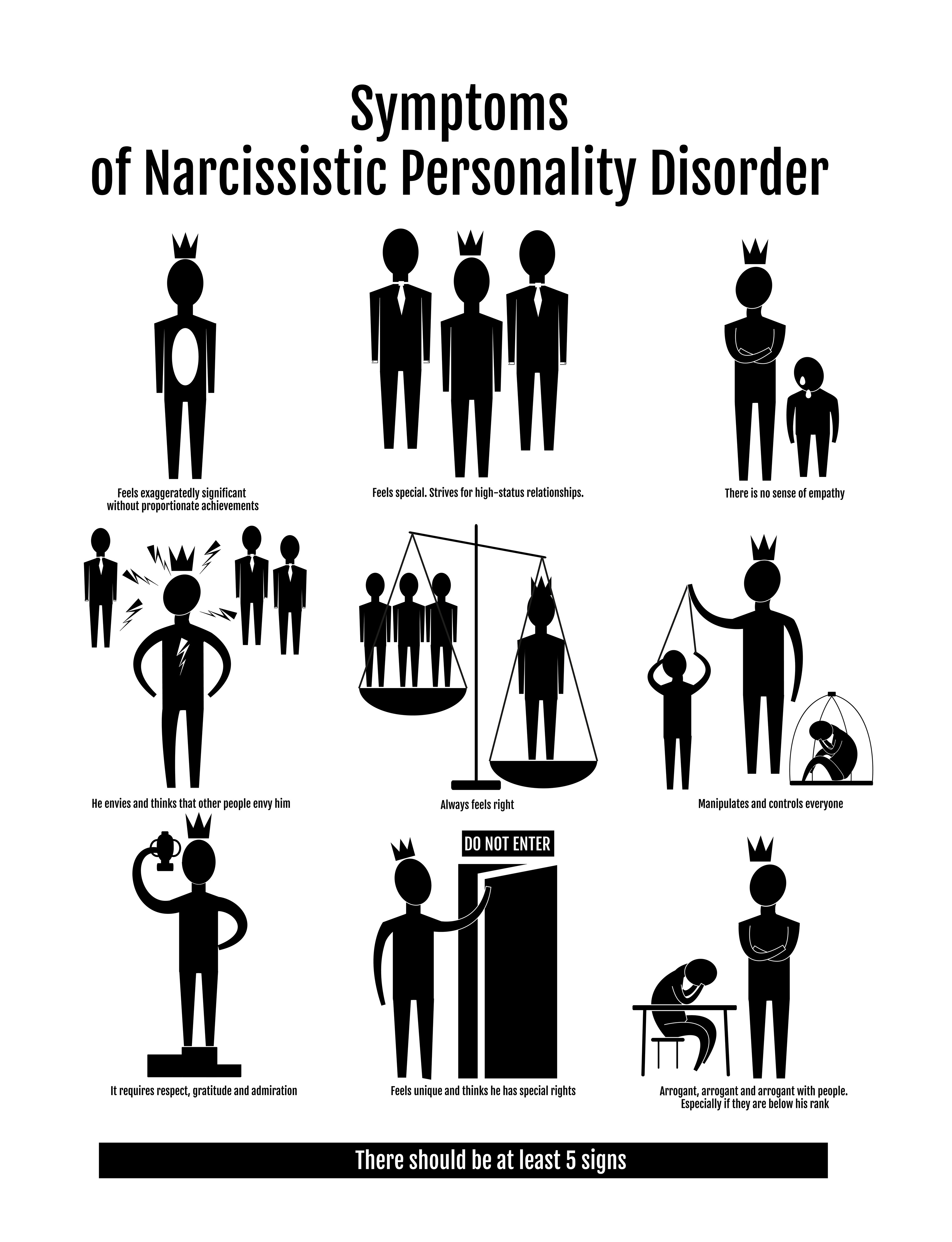 Understanding Narcissism
Understanding Narcissism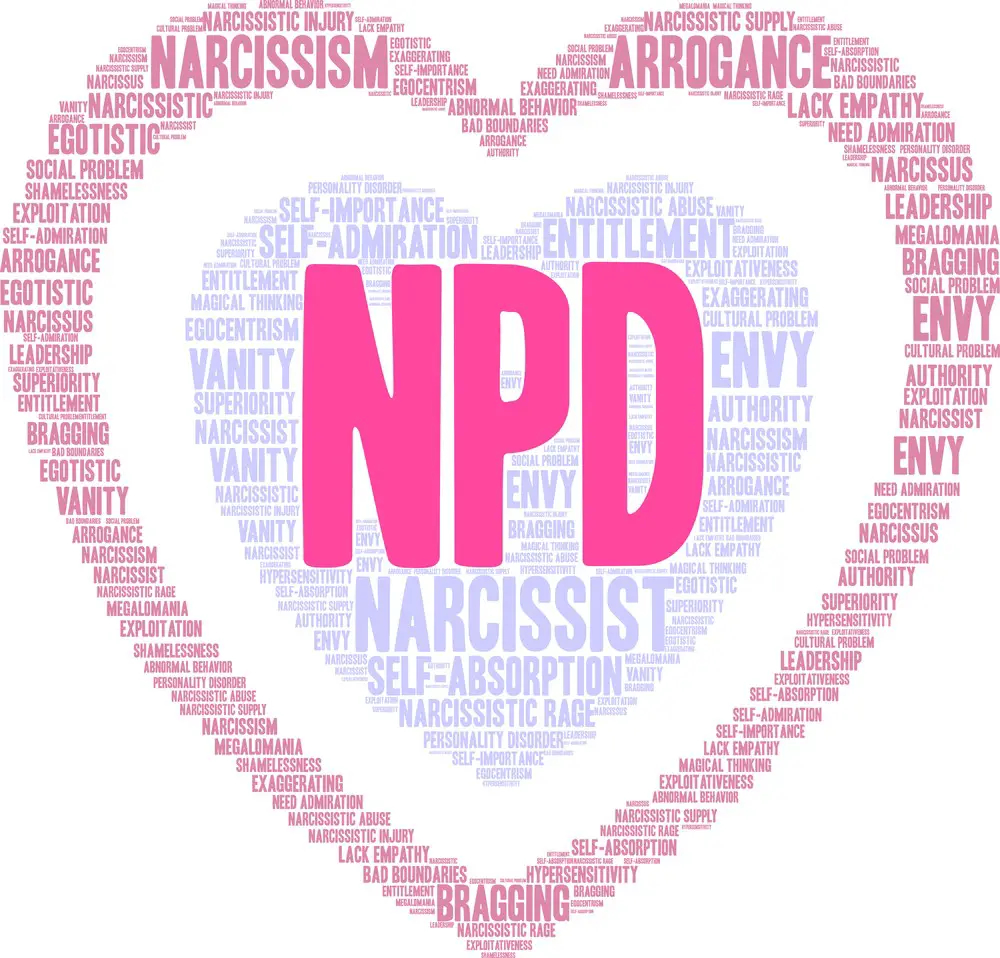 Living with a Narcissist
Living with a Narcissist Building Boundaries
Building Boundaries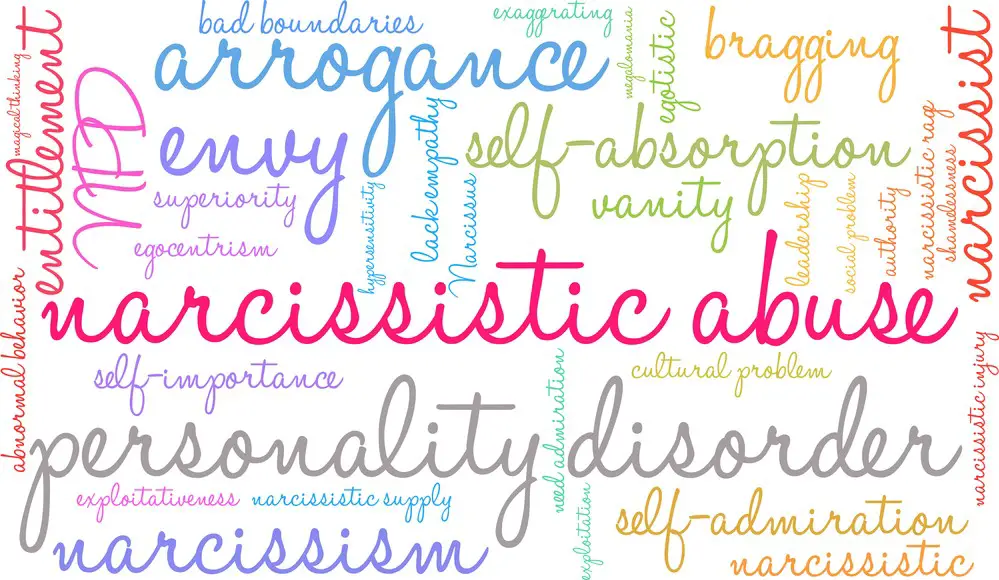 The Essence of Compassion
The Essence of Compassion Understanding the Cycle
Understanding the Cycle Dealing with Emotional Outbursts
Dealing with Emotional Outbursts The Role of the Support System
The Role of the Support System Self-Care Strategies
Self-Care Strategies The Necessity of Therapy
The Necessity of Therapy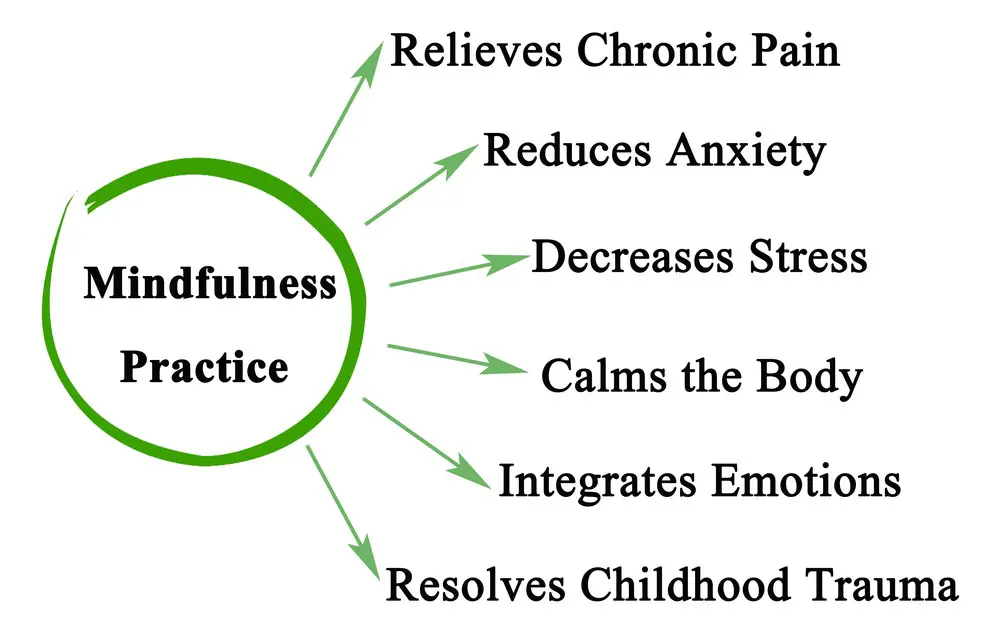 How to Heal
How to Heal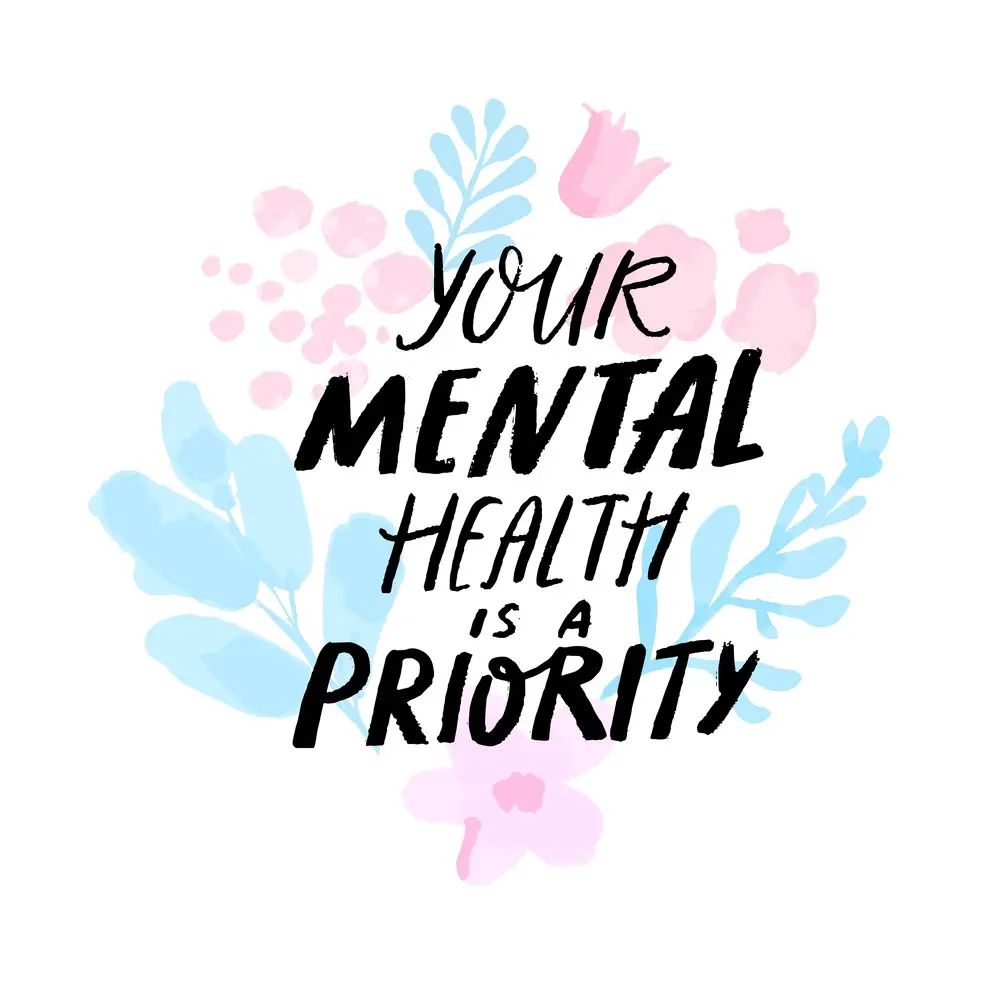 The Notion of Control
The Notion of Control The Need for Attention
The Need for Attention

